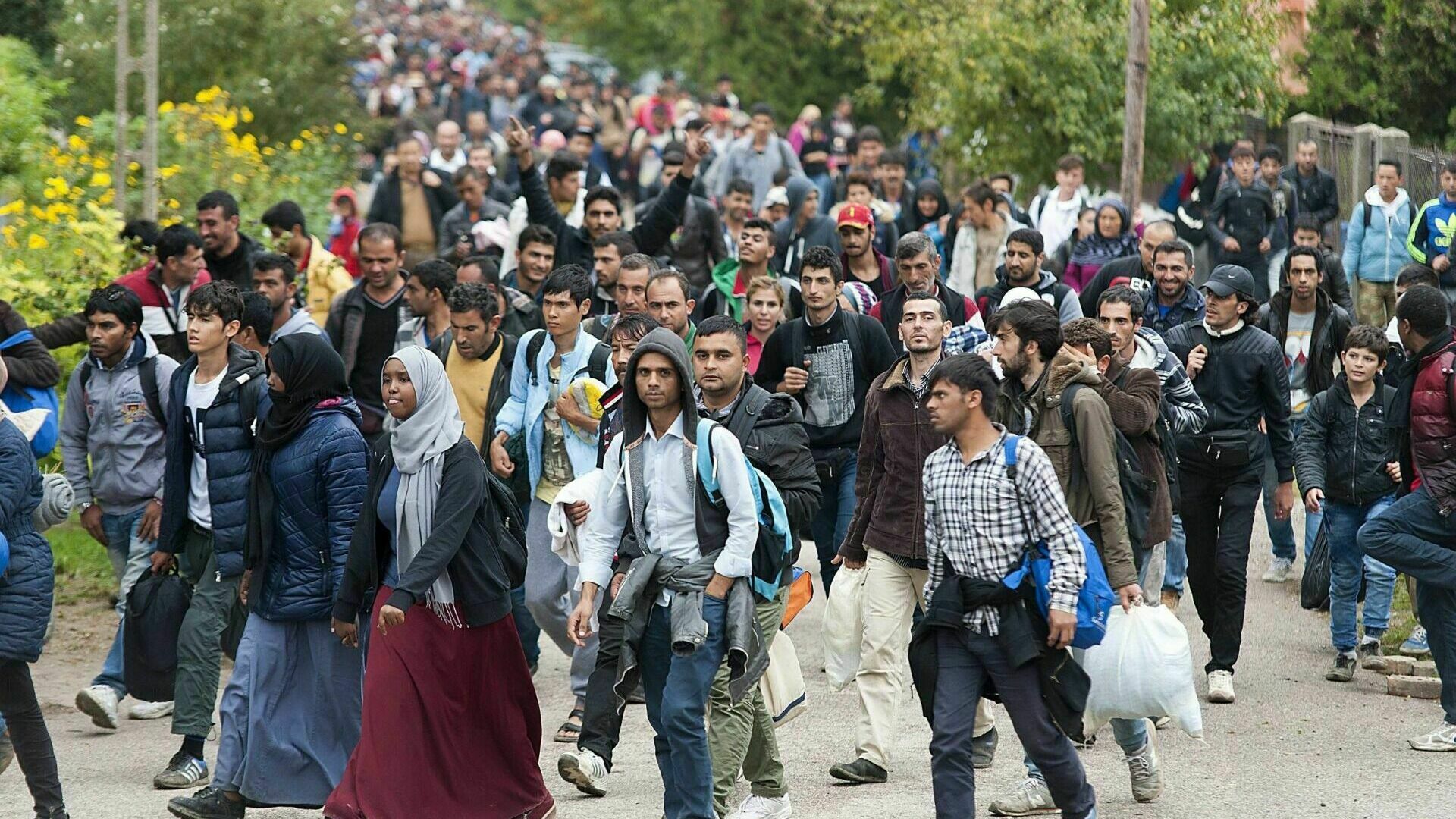Posted 8 февраля 2023, 13:57
Published 8 февраля 2023, 13:57
Modified 8 февраля 2023, 14:59
Updated 8 февраля 2023, 14:59

They are at the door, they are at the window: Europe cannot solve the problem of illegal migration in any way
Ivan Zubov
This is not surprising, since in 2022 about 330 thousand illegal crossings of EU borders were registered – an increase of 64% compared to the previous pandemic year.
Moreover, as the EU Refugee Agency notes, the gap between the number of applications for refugee status and the number of decisions reached the highest level in seven years and more than 920 thousand cases were under consideration.
It should be added to this that the European infrastructure for receiving refugees is still overloaded with the Ukrainian flow. More than 7.8 million Ukrainians have entered the EU countries during the SVO, at the end of the year the number of refugees from Ukraine who received temporary protection status there was 4.9 million.
Political scientist Alexander Ivakhnik writes in his channel about how the Europeans intend to solve this problem, which now concerns Russian citizens as well.:
"If refugees from Ukraine were welcomed in Europe – both at the level of the authorities and in the mass of the population – on the whole hospitably, then the attitude towards migrants from North Africa and the Middle East is much more wary. This is partly due to large ethno–cultural and religious differences, partly due to the uncertainty of the real motives for their arrival in Europe. After the most powerful migration crisis of 2015-2016, the EU countries were unable to develop an effective common migration policy due to acute contradictions. Attempts to introduce mandatory quotas for the redistribution of asylum seekers between member countries and thereby reduce the burden on Greece, Italy and Spain, which have become the main points of arrival of migrants, have led to nothing. The countries of Central and Eastern Europe, which last year readily accepted Ukrainians, categorically refused to host Arabs or Afghans. Therefore, now, in a situation of acute geopolitical crisis, the EU leadership does not even put forward far-reaching plans to mitigate the migration problem, promote ways of integrating distant migrants into European societies, but suggests discussing measures that will not meet fundamental objections.
Among such measures are strengthening the security of the EU's external borders, increasing the resources of the common European border service Frontex. Some EU figures, in particular, Austrian Prime Minister Karl Nehammer and the head of the European People's Party faction in the European Parliament Manfred Weber, raise the issue of allocating funds from the EU budget for the construction of a fence on the border between the poorest country of the Union Bulgaria and Turkey, from where Syrian refugees moved to Europe. By the way, it is precisely because of insufficient border protection that Austria recently blocked the entry of Bulgaria and Romania into the Schengen area. However, so far the European Commission is against financing the construction of border barriers from the common funds of the Union.
The main proposal of the EC before the upcoming summit is to take measures to accelerate the return (i.e. deportation) of migrants who have been refused asylum to their countries of origin or transit. This is a really important question. In 2021, the migration services of the EU countries decided to expel 342 thousand people, but only 24% of them were deported outside the union. In the first half of 2022, 180 thousand people were denied the right to stay, but only 19% left the EU. Often, failures with deportation are associated not only with the resistance of migrants, but also with the unwillingness of other countries to take back their citizens.
Thus, cooperation on this issue did not develop with Morocco, Tunisia and Algeria. The European Commission suggests using all appropriate instruments, both positive and negative, as a lever of pressure on such countries. Among the first is an increase in financing from the EU aid budget to developing countries, and expansion of trade opportunities. Among the second is the extension of deadlines and an increase in fees for visa processing. Admittedly, similar proposals from the EC have already been made before and even adopted at summits, but they did not have a noticeable practical effect. There are big doubts that this time they will bring a significant result..."